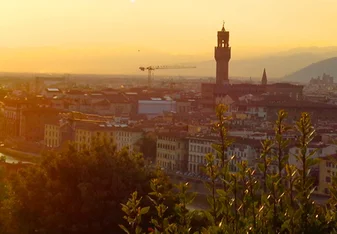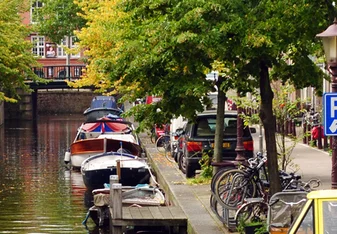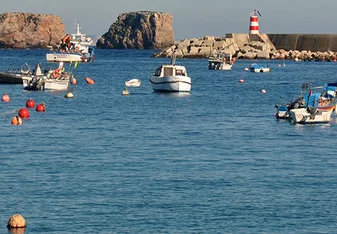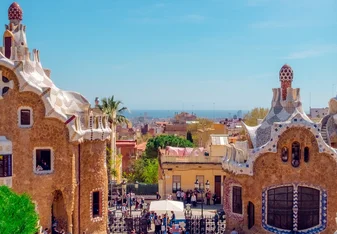Gap Year Programs in Italy
Gap Year Programs in Italy
Pagination
About
More than half of all the Westernized world's artistic masterpieces can be found in Italy. Italy is an extremely varied country. Its culture is an expression of various historical eras, covering nearly 2,800 years. The Italian culture has its foundations in a very important and fruitful religion and a great secular humanistic culture. Italy has been and still is an intellectual hub for the western world. It is a must-see for anyone interested in art or history and is the perfect location for spending a gap year abroad.
Types of Programs
Volunteering
While Italy is considered a first-world country, they need volunteers in conservation, healthcare, childcare, and education. If you choose to volunteer during your gap year, remember to be open-minded and ready to embrace Italian culture! Volunteering is a mutually beneficial opportunity where you can learn about Italian culture and language while improving the quality of life for the Italian people. Participating in meaningful community service abroad may be a once in a lifetime opportunity, so don’t miss out!
Adventure Travel
Italy is one of those striking countries where you can spend an entire year learning and traveling and still feel like you've barely scratched the surface. With mind-blowing art and some of the world’s most significant cities, it truly takes a lifetime to experience all that Italy has to offer. Imagine ducking into a random church to escape the heat, only to spend two hours staring at an impossibly pure blue in a fresco. Where else in the world is that possible?
Italy has world-renowned cuisine, gorgeous beaches, and great skiing up in the Alps. Experience its stunning architecture, mysterious passageways, the gentle canals of Venice, and take a moonlit gondola ride smiling as the white light ripples in the water. For the nature explorers out there, Italy offers incredible winter sports programs with perfect powder for skiers and snowboarders to plow through.
Internships
While learning the ins and out of the business world, interning in Italy will allow you to develop your language skills and participate in the day-to-day activities of an Italian professional. Many internships are geared towards individuals with intermediate to advanced language skills who want to practice their Italian regularly. Interning in Italy is a great addition to your college career and a huge boost to your resume.
Many companies that offer internships are looking for enrolled college students and those who recently graduated. Internships are usually customizable, meaning that you can add what you like and take away what you don't! Many companies are flexible, allowing you to arrange your schedule to take classes or perform volunteer work simultaneously.
Planning Your Trip
Cost of Living in Italy
Housing costs in Italy are relatively affordable. For a single unit apartment which includes utilities and water, prepare to pay around 450 Euros a month. Housing isn’t what makes living in Italy so expensive. Living in the cities can be very difficult, even for the middle class. This is because Italian taxes rank among the highest in the world. Taxes are present in almost all forms, from small purchases to housing and employment. Food costs more than in the United States, as does transportation and most leisure activities.
Culture and Etiquette in Italy
The family is the center of Italy's social structure, providing a stabilizing influence for its members. Italians move out of the house at a later age than in America. Remember, appearances matter in Italy. The way you dress can indicate your social status, family background, and education level. Italy is primarily a Roman Catholic country. Always be respectful of Catholic traditions. Greetings are enthusiastic but formal. Italians usually greet a traveler with a handshake and with direct eye contact. Status and hierarchy are important in Italian business settings, so be formal until told otherwise.
Health & Safety
Italy’s major cities have no more crime than other large cities in Europe. In fact, they are safer than many other European cities, but travelers still need to be cautious about petty crimes. Pickpocketing is the most frequent crime perpetrated against tourists, so be careful in tourist locations, train stations, and any crowded place. Violence against tourists is extremely rare in Rome. In fact, violent crime is uncommon around the entire country. Fortunately, cities like Rome's biggest safety risk is the traffic, so be careful crossing streets! Keep your eyes peeled for reckless scooters.
What People Are Saying
New Jobs
View the latest job postings on our job board. A great way to earn work experience during your gap year!
Related Gap Year Articles
Frequently Asked Questions
-
What are the benefits of a gap year in Italy?
Italy is a popular destination for expats and travelers due to its world-renowned food, incredible displays of art, and reasonable cost of living throughout most of the country. Gappers can expand their knowledge of modern history and art through programs and internships while immersing themselves in the Italian culture.
-
How much does it cost to live in Italy for a year?
Italy’s big cities are quite expensive but living in small towns away from tourist areas is much more affordable. Of course, the overall cost of a gap year in Italy depends on many variables, including location and travel expenses. Au pair and work exchange programs are a way for gappers to lower their costs and travel on a budget.
-
What kind of visa do I need for a gap year in Italy?
A visitor visa in Italy is valid for 90 days and not required before entry with a valid passport (depending on nationality). Visas that permit working in Italy or allow an extended stay require an application. To review visa requirements and apply, visit the Visa for Italy web portal.
-
What are the most popular types of gap year programs in Italy?
Italy is renowned for its art exhibits and has a diverse culture rooted in almost 3,000 years of history, making it the perfect destination for gappers interested in art history. Gap year providers offer programs that take gappers on an immersive and educational art history tour throughout Italy. Additionally, culinary programs are also popular for travelers looking to expand their knowledge of Italian culture.




















